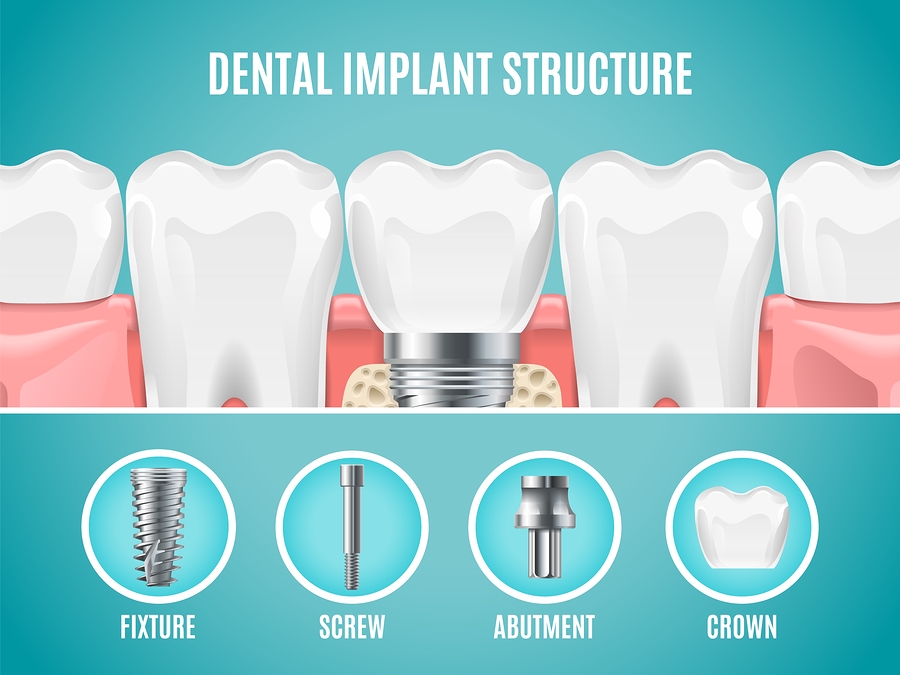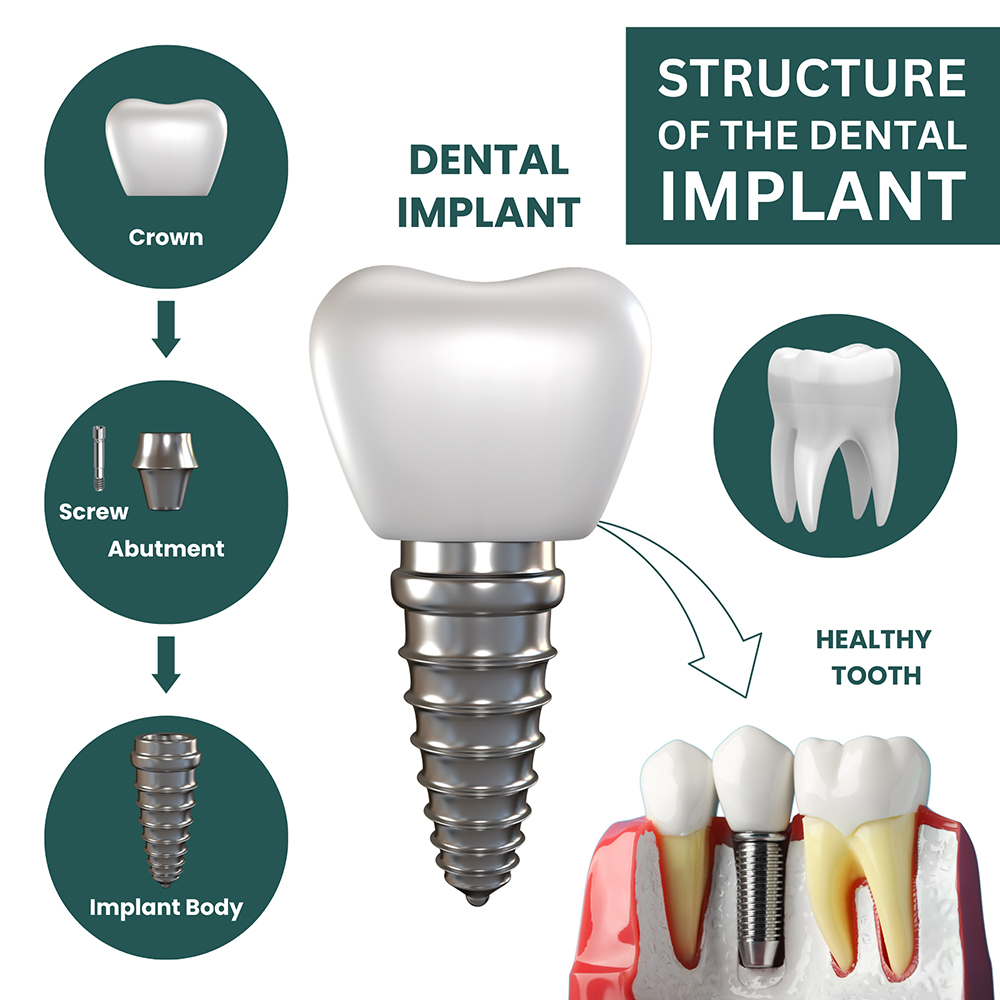The 30-Second Trick For Dental Sense
The 30-Second Trick For Dental Sense
Blog Article
Some Known Details About Dental Sense
Table of ContentsRumored Buzz on Dental SenseThe Greatest Guide To Dental SenseSome Known Details About Dental Sense The Best Strategy To Use For Dental Sense
are clinical tools surgically implanted into the jaw to bring back a person's ability to chew or their look. They supply support for fabricated (fake) teeth, such as crowns, bridges, or dentures. When a tooth is shed due to injury or illness, a person can experience complications such as rapid bone loss, malfunctioning speech, or changes to chewing patterns that lead to discomfort.Oral dental implant systems contain a dental implant body and oral implant abutment and might also consist of an abutment addiction screw. Front tooth filling. The oral implant body is operatively placed in the jawbone in area of the tooth's root. The oral implant joint is generally affixed to the implant body by the abutment addiction screw and prolongs with periodontals into the mouth to sustain the connected fabricated teeth
(https://blogfreely.net/dentalsense1/5eq6ue3fhs)Framework of The Dental Implant System choosing oral implants, talk to your dental supplier concerning the possible benefits and dangers, and whether you are a prospect for the treatment. Points to think about: Your overall wellness is a vital consider identifying whether you are an excellent candidate for oral implants, just how long it will take to recover, and for how long the implant may remain in area.
Cigarette smoking might influence the healing procedure and reduce the long-lasting success of the implant. The healing process for the dental implant body may take numerous months or longer, throughout which time you normally have a momentary joint in location of the tooth. the dental implant procedure: Very carefully comply with the oral health directions given to you by your oral copyright.
6 Easy Facts About Dental Sense Explained
Implant failing can result in the need for an additional procedure to deal with or replace the implant system. Recovers the capability to eat Restores cosmetic appearance Aids keep the jawbone from diminishing because of bone loss Maintains the health and wellness of the bordering bone and gums Aids keep nearby (nearby) teeth stable Enhances lifestyle Damage to surrounding all-natural teeth throughout dental implant positioning Injury to the surrounding tissues throughout surgery, such as sinus opening Injury during surgical treatment (as an example, crack of surrounding jawbone) Insufficient feature, such as seeming like the teeth do not bite with each other usually An experience that the tooth hangs or twisting in area arising from an abutment screw loosening up Implant body failing (looseness of the dental implant body) as a result of systemic infection, which may be more probable in clients with unchecked diabetes mellitus because of local infection in bone and gums sustaining the implant body because of delayed recovery, which might be most likely in patients who smoke Problem cleaning up the gums around the dental implant, causing inadequate oral health Neglected gum disease Post-surgical tingling because of nerve impingement or damage Constantly inform healthcare carriers and imaging specialists that you have oral implants prior to any type of magnetic resonance imaging (MRI) or x-ray procedures.
FDA is not knowledgeable about any type of unfavorable occasions reported for MRI or x-ray procedures with dental implants. Oral implants systems are typically made from materials that comply with international consensus criteria of the International Organization for Standardization (ISO) or ASTM International. These requirements have information of what makes a safe product.

A dental implant is a structure that replaces a missing out on tooth. With screw-like tools, the surgeon inserts a dental implant into the jawbone, and it acts as an anchor for a fabricated tooth, called a crown. A device called an abutment links the artificial tooth to the dental implant. The crown is customized to fit the individual's mouth and match the shade of their teeth.
The Definitive Guide to Dental Sense
Some people are not qualified for dental implant surgical procedure. It is for oral specialists to run on people with: severe illnessuncontrollable metabolic diseasebone or soft cells illness or infectionIf these problems are fixed, an individual can have the surgery. In, oral surgeons refrain from operating people with: If people with any one of the above undertake oral implant surgery, there is a higher threat of the implant stopping working.

Oral implant surgery is a personalized procedure. Provide you Related Site time to recover. Affix the blog post and final crown, bridge or denture.
Next, your cosmetic surgeon will carefully put the dental implant into your jaw. Finally, your specialist will reposition your gum tissues and shut the laceration with stitches. If your dental implant is near the front of your mouth, your dental professional will certainly make a temporary tooth for you to use till you recover. By doing this, you will not have a space in your smile while you recoup.
The Buzz on Dental Sense
Throughout the recovery phase, your jawbone needs to fuse to the dental implant. This process can take anywhere from three to 9 months.
As soon as your implant heals, your dental practitioner can affix the joint (tiny adapter message) and your last remediation (crown, bridge or denture). This generally takes about one hour to complete and may call for a second minor surgery. You shouldn't really feel any type of pain throughout your oral implant procedure since your supplier will certainly use medicine to numb your gum tissues.
Report this page